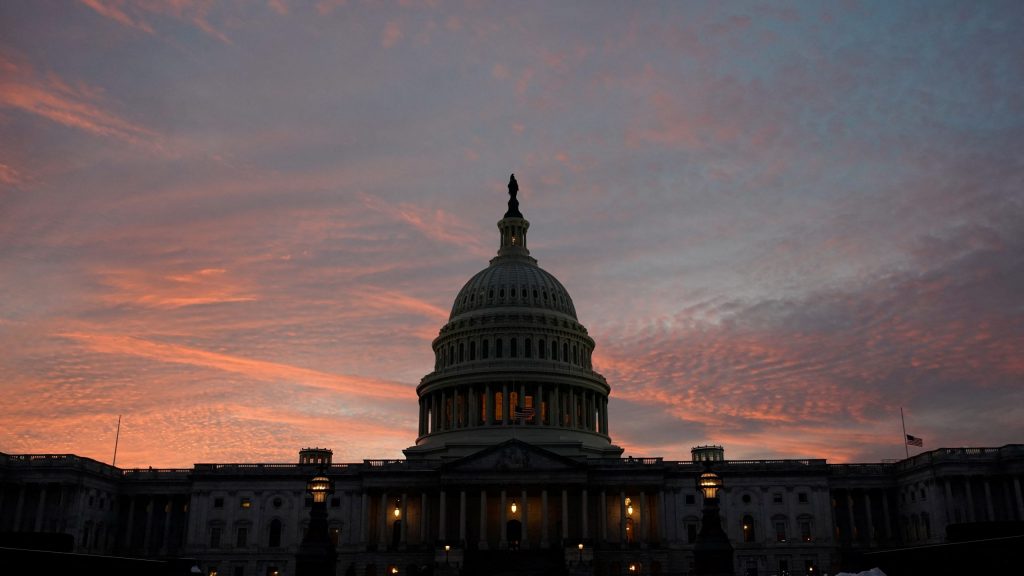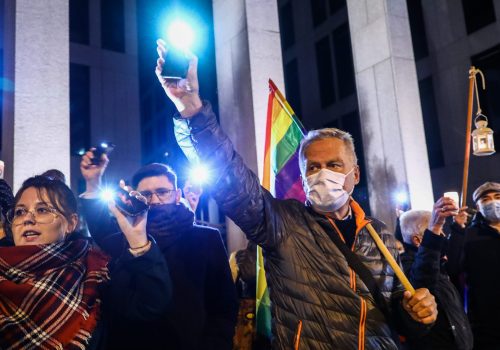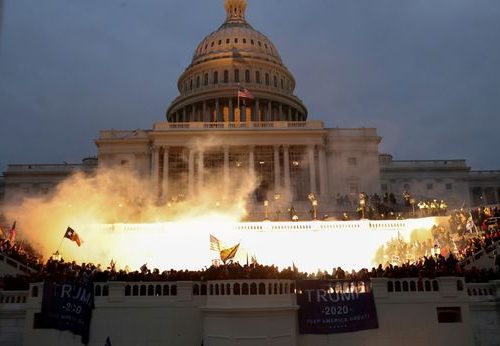One year after the attempted putsch of January 6, American democracy remains in peril.
As it turns out, Americans are neither anointed for easy greatness nor immune to the ills and sins to which other peoples are prone. The wisdom of the ancient philosophers and the American founders about the vulnerability of republics first to chaos and then to tyranny applies to Americans as well as to others whose democracies have failed in the past.
For Americans, the stakes are high. American identity, unlike that of most nations, is rooted not in blood or ethnicity but in self-evident truths of human equality. Through the embrace of such ideals, immigrants to the United States become, as Abraham Lincoln put it, the “blood of the blood and the flesh of the flesh” of all other Americans. Those ideals make the American nation. The political expression of that national identity, rooted in universal truths, is democracy. Give that up and the United States is no longer a “new nation, conceived in liberty.” We would degenerate into an ethno-state, a white man’s country along the lines of the Confederacy—and, if former President Donald Trump and his circle have their way, a tyranny.
The stakes for the world are high as well. American democracy has inspired the world’s democratic movements for longer than many think. After the Union’s victory in the Civil War, the French abolitionist and liberal Édouard René de Laboulaye wanted to celebrate what he and others saw as a twin victory of liberty over the slave state that was the Confederacy and of democracy over chaos or tyranny. He conceived of a great Statue of Liberty to mark that victory. She still stands in New York Harbor, her torch held aloft as inspiration for Europe and the world.
Since 1941, the United States has stood as the bulwark of democracy and liberty in the world. Despite all our mistakes, blunders, and hypocrisies, US leadership has brought about much good. The vision of a free world of republics at peace with one another was not an American idea (it was philosopher Immanuel Kant’s), but the United States was the first great power to try to make it happen.
Yet now, with American democracy under pressure, its adversaries take new heart. Not since the 1930s, the Great Depression, and the rise of Adolf Hitler in Germany and Joseph Stalin in the Soviet Union has democracy seemed so on the defensive and tyrants so emboldened. Russian President Vladimir Putin and Chinese President Xi Jinping appear to believe that the future belongs to them. The Kremlin’s propaganda machine speaks with glee about American decline while threatening war in Europe. China threatens war to conquer Taiwan. The United States’ democratic friends in Europe and Asia seem disheartened, wondering whether the country that they have taken for granted and relied upon (while complaining about it) can be counted on.
US President Joe Biden and his team appear to grasp this. They have tried to frame their strategy in terms of a global contest between democracy and aggressive authoritarianism. They recognize that the United States must strengthen democracy at home. Biden, like former President Franklin Delano Roosevelt, seems to understand that the domestic fight against political extremism depends on delivering for the American people. He also seems to understand—as did Roosevelt and former Presidents Harry Truman and Ronald Reagan—that American democracy cannot prosper if it stands alone, beleaguered, in a world in which tyrants are on the march. Thus, Biden is trying to rally the world’s democracies—to help them, and thus ourselves, better contend with contemporary problems and show that democracy can deliver.
It’s a start.
In the immediate aftermath of the January 6 attack, I wrote that the long-term damage to the country would depend in large part on whether leading Republicans turned away from radicalism. At first it seemed that they might, given the determination with which Congress, in a bipartisan way, reconvened after the rioters had been cleared from the US Capitol to complete their work and recognize Biden’s victory.
But I was too optimistic. Trump maintains his position as the leading figure in the Republican Party and holds fast to the big lie that he somehow won the 2020 presidential election. With notable exceptions such as US House members Liz Cheney of Wyoming and Adam Kinzinger of Illinois, leading Republicans have gone silent or equivocated in the face of the attempted overthrow of the electoral process. Trump’s extremist movement appears both determined and committed to authoritarian principles. Just this week, former Trump adviser Peter Navarro defended the attempt to nullify the election result. The Trumpist movement’s activists have continued to defend and advance Trump’s authoritarian message, as the Atlantic Council’s Digital Forensic Research Lab has reported. But this isn’t just another fringe political movement; polls show significant support among Republicans for the Trumpist radicalized right.
It will not be easy to fix the problems that led to this radicalization. But nor will it be easy to overthrow American democracy and the constitutional order. At home, the US House’s Select Committee to Investigate the January 6th Attack is at work. So is the US Justice Department in its investigation of the attempt to subvert a presidential election through intimidation and violence.
Lincoln’s Secretary of State William H. Seward made a good point when he said: “There was always just enough virtue in this republic to save it; sometimes none to spare, but still enough to meet the emergency.” I hope he’s right.
Daniel Fried is the Weiser Family distinguished fellow at the Atlantic Council. He was the coordinator for sanctions policy during the Obama administration, assistant secretary of state for Europe and Eurasia during the Bush administration, and senior director at the National Security Council for the Clinton and Bush administrations. He also served as ambassador to Poland during the Clinton administration. Follow him on Twitter @AmbDanFried.
Further reading
Thu, Oct 14, 2021
Is liberalism ending its losing streak in Central Europe?
New Atlanticist By Petr Tůma
The Czech opposition's victory could inspire other democratic forces across the region.
Tue, Nov 9, 2021
How to get Biden’s democracy summit right
New Atlanticist By Daniel Fried, Rose Jackson
Two of the Council’s democracy experts say the upcoming Summit for Democracy needs to take aim at autocrats’ tools by focusing on anti-corruption and tech standards, and elevating civil society.
Tue, Jan 4, 2022
After the insurrection: How domestic extremists adapted and evolved after the January 6 US Capitol attack
Report By Jared Holt
This report by the Digital Forensic Research Lab (DFRLab) provides an overview and analysis of the shifts observed in domestic extremist movements since the 2021 Capitol attack.
Image: The US Capitol is pictured at sunset on the eve of the first anniversary of the January 6, 2021 attack on the building. Photo by Elizabeth Frantz/REUTERS



